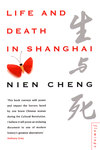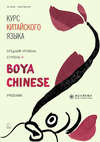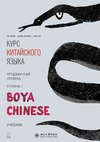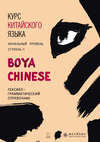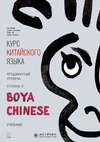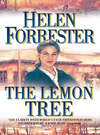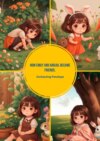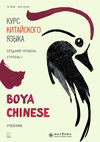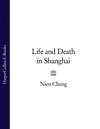Kitabı oku: «Life and Death in Shanghai», sayfa 6
I felt utterly helpless. There was nothing I could do to prevent the destruction of my home and the loss of all my possessions. My daughter became very worried. More than once, she talked about our not being able to live on her small salary. I decided the time had come to tell her about my bank accounts in Hong Kong and elsewhere which, I told her, would be more than sufficient to cover our living expenses. Actually I myself was more worried about her status after the Cultural Revolution. If a new society was to be formed in which descendants of capitalist-class families were to become a permanently unprivileged class in China, like the Untouchables in India, her life would be unthinkable. To me this was of more importance than the loss of our material possessions.
To take care of the servants, I decided to give them the 6,000 yuan I had obtained from the bank straightaway before the Red Guards came to our house. At first they refused to accept the money, reiterating their wish to remain to look after Meiping and myself. They also offered to hide my jewellery and valuables in their homes. Not wishing to implicate them in my own difficulties, I refused. I called Chen Mah, Lao Chao and Cook to my study and discussed with them how best to divide the money among the three of them. Because the gardener was not a full-time employee and came only occasionally, I decided to give him only 400 yuan. Chen Mah offered to take less than the other two because, she said, ‘They have to take care of their wives.’ After I had divided the money, I placed the 400 yuan for the gardener in an envelope intending to give it to him the next time he came to work in the garden.
I told my servants that if they were afraid, they could leave any time. When the Cultural Revolution was over, if I was financially able, I would give them additional money, for they had all been with me for a very long time.
After that had been done, I waited for the Red Guards.
CHAPTER 3 The Red Guards
AS THE TEMPO OF the Proletarian Cultural Revolution gathered momentum, all-night sessions of political indoctrination were often held in different organizations. On the evening of 30 August when the Red Guards came to loot my house, my daughter was at her Film Studio attending one of these meetings. I was sitting alone in my study reading The Rise and Fall of the Third Reich, which had come in the last batch of books from a bookshop in London with which I had an account. Throughout the years I worked for Shell, I managed to receive books from this shop by having the parcels sent to Shell because the Shanghai censors always passed unopened all parcels addressed to organizations. Since the office received an enormous amount of scientific literature for distribution to Chinese research organizations, my small parcel attracted no undue attention.
The house was very quiet. I knew Lao Chao was sitting in the pantry as he had done day after day. Chen Mah was in her room, probably lying in bed wide awake. There was not the slightest sound or movement anywhere, almost as if everything in the house was holding its breath waiting helplessly for its own destruction.
The windows of my study were open. The bitter-sweet perfume of the magnolia in the garden and the damp smell of the cool evening air with a hint of autumn pervaded the atmosphere. From the direction of the street, faint at first but growing louder, came the sound of a heavy motor vehicle slowly approaching. I listened and waited for it to speed up and pass the house. But it slowed down and the motor was cut off. I knew my neighbour on the left was also expecting the Red Guards. Dropping the book on my lap and sitting up tensely, I listened, wondering which house was to be the target.
Suddenly the door bell began to ring incessantly. At the same time, there was furious pounding of many fists on my front gate, accompanied by the confused sound of many hysterical voices shouting slogans. The cacophony told me that the time of waiting was over and that I must face the threat of the Red Guards and the destruction of my home. Lao Chao came up the stairs breathlessly. Although he had known the Red Guards were sure to come eventually and had been waiting night after night just as I had done, his face was ashen.
‘They have come!’ His unsteady voice was a mixture of awe and fright.
‘Please keep calm, Lao Chao! Open the gate but don’t say anything. Take Chen Mah with you to your room and stay there,’ I told him.
Lao Chao’s room was over the garage. I wanted both of them to be out of the way so that they could be prevented from saying anything to offend the Red Guards out of a sense of loyalty to me.
Outside, the sound of voices became louder. ‘Open the gate! Open the gate! Are you all dead? Why don’t you open the gate?’ Some were heard swearing and kicking the wooden gate. The horn of the truck was blasting too.
Lao Chao ran downstairs. I stood up to put the book on the shelf. A copy of the Constitution of the People’s Republic caught my eye. Taking it in my hand and picking up the bunch of keys I had ready on my desk, I walked downstairs.
Although in my imagination I had already lived through this moment many times, my heart was pounding. However, lifelong discipline enabled me to maintain a calm appearance. By the time I had reached the bottom of the staircase, I was the epitome of Chinese fatalism.
At the same moment, the Red Guards pushed open the front door and entered the house. There were between thirty and forty senior high school students, aged between fifteen and twenty, led by two men and one woman much older. Although they all wore the armbands of the Red Guards, I thought the three older people were the teachers who generally accompanied the Red Guards when they looted private homes. As they crowded into the hall, one of them knocked over a pot of jasmine on a Fen T’sai porcelain stool. The tiny white blooms scattered on the floor were trampled by their impatient feet.
The leading Red Guard, a gangling youth with angry eyes, stepped forward and said to me, ‘We are the Red Guards. We have come to take revolutionary action against you!’
Though I knew I was doing something futile and pointless, I held up the copy of the Constitution and said calmly, ‘It’s against the Constitution of the People’s Republic of China to enter a private house without a search warrant.’
The young man snatched the document out of my hand and threw it on the floor. With his eyes blazing, he said, ‘The Constitution is abolished. It was a document written by the Revisionists within the Communist Party. We recognize only the teachings of our Great Leader Chairman Mao.’
‘Only the People’s Congress has the power to change the Constitution,’ I said.
‘We have abolished it. What can you do about it?’ he said aggressively while assuming a militant stance with his feet apart and shoulders braced.
A girl came within a few inches of where I stood and said, ‘What trick are you trying to play? Your only way out is to bow your head in submission. Otherwise you will suffer.’ She shook her fist in front of my nose and spat on the floor.
Another young man used a stick to smash the mirror hanging over the blackwood chest facing the front door. A shower of glass fell on the blue and white K’ang Hsi vase on the chest but the carved frame of the mirror remained on the hook. He tore the frame off and hurled it against the banister. Then he took from another Red Guard a small blackboard which he hung up on the hook. On it was written a quotation from Mao Tze-tung. It said, ‘When the enemies with guns are annihilated, the enemies without guns still remain. We must not belittle these enemies.’
The Red Guards read the quotation aloud as if taking a solemn oath. Afterwards, they told me to read it. Then one of them shouted to me, ‘An enemy without gun! That’s what you are. Hand over the keys!’
I placed my bunch of keys on the chest amidst the fragments of glass. One of them picked it up. All the Red Guards dispersed into various parts of the house. A girl pushed me into the dining room and locked the door.
I sat down by the dining table and looked around the room. It was strange to realize that after this night I would never see it again as it was. The room had never looked so beautiful as it did at that moment. The gleam of the polished blackwood table was richer than ever. The white lacquered screen with its inlaid ivory figures stood proudly in one corner, a symbol of fine craftsmanship. The antique porcelain plates and vases on their blackwood stands were placed at just the right angle to show off their beauty. Even the curtains hung completely evenly, not a fraction out of line. In the glass cabinet were white jade figures, a rose quartz incense burner and ornaments of other semi-precious stones that I had lovingly collected over the years. They had been beautifully carved in intricate designs by the hands of skilled artists. Now my eyes caressed them to bid them farewell. Having heard from Winnie that the painter Ling Fong-min was in serious trouble, I knew that his painting of a lady in blue hanging over the sideboard would be ruthlessly destroyed. But what about the other ink and brush painting by Chi Pei Shi? He was a great artist of the traditional style. Because of his having been a carpenter in early life, he was honoured by the Communist Party. Would the Red Guards know the facts of Chi Pei Shi’s life and spare this painting? I looked at it carefully, my eyes lingering over each stroke of his masterful brush. It was a picture of the lotus, a favourite subject of Chinese artists because the lotus symbolized purity. The poet Tao Yuan Ming (AD 376-427) used the lotus to represent a man of honour in a famous poem, saying that the lotus rose out of mud but remained unstained.
I recited the poem to myself and wondered whether it was really possible for anyone to remain unstained by his environment? It was an idea contrary to Marxism, which held that the environment moulded the man. Perhaps the poet was too idealistic, I thought as I listened to the laughter of the Red Guards overhead. They seemed to be blissfully happy in their work of destruction because they were sure they were doing something to satisfy their God, Mao Tze-tung. Their behaviour was the result of their upbringing from childhood in Communist China. The propaganda they had absorbed precluded their having a free will of their own.
A heavy thud overhead stopped my speculations. I could hear the sound of many people walking up and down the stairs, glasses being broken and heavy knocking on the wall. The noise intensified. It sounded almost as if the Red Guards were tearing the house down rather than merely looting its contents. I became alarmed and decided to try to secure my release by deception.
I knocked on the door. There was such a din in the house that no one heard me. I knocked harder and harder. When I heard a movement outside the door, I called out, ‘Open the door!’
The handle was turned slowly and the door opened a narrow gap. A girl Red Guard in pigtails asked what I wanted. I told her I had to go to the bathroom. She let me out after cautioning me not to interfere with their revolutionary activities.
The Red Guards had taken from the storeroom the crates containing my father’s books and papers and were trying to open them with pliers in the hall. Through the open drawing room door, I saw a girl on a ladder removing the curtains. Two bridge tables were in the middle of the room. On them were laid a collection of cameras, watches, clocks, binoculars and silverware which the Red Guards had gathered from all over the house. These were the ‘valuables’ they intended to present to the State.
Mounting the stairs, I was astonished to see several Red Guards taking pieces of my porcelain collection out of their padded boxes. One young man had arranged a set of four K’ang Hsi winecups in a row on the floor and was stepping on them. I was just in time to hear the crunch of delicate porcelain under the sole of his shoe. The sound pierced my heart. Impulsively I leapt forward and caught his leg just as he raised his foot to crush the next cup. He toppled. We fell in a heap together. My eyes searched for the other winecups to make sure we had not broken them in our fall, and, momentarily distracted, I was not able to move aside when the boy regained his balance and kicked me right in my chest. I cried out in pain. The other Red Guards dropped what they were doing and gathered around us, shouting at me angrily for interfering in their revolutionary activities. One of the teachers pulled me up from the floor. With his face flushed in anger, the young man waved his fist, threatening me with a severe beating. The teacher raised her voice to restore order. She said to me, ‘What do you think you are doing? Are you trying to protect your possessions?’
‘No, no, you can do whatever you like with my things. But you mustn’t break these porcelain treasures. They are old and valuable and cannot be replaced,’ I said rather breathlessly. My chest throbbed with pain.
‘Shut up! Shut up!‘ A chorus of voices drowned my voice.
‘Our Great Leader said, “Lay out the facts; state the reasons”, I summoned all my strength and yelled at the top of my voice to be heard.
The teacher raised her hand to silence the Red Guards and said, ‘We will allow you to lay out the facts and state the reasons.’ The Red Guards glared at me.
I picked up one of the remaining winecups and cradled it in my palm. Holding my hand out, I said, ‘This winecup is nearly three hundred years old. You seem to value the cameras, watches and binoculars, but better cameras, better watches and more powerful binoculars are being made every year. No one in this world can make another winecup like this one again. This is a part of our cultural heritage. Every Chinese should be proud of it.’
The young man whose revolutionary work of destruction I had interrupted said angrily, ‘You shut up! These things belong to the old culture. They are the useless toys of the feudal Emperors and the modern capitalist class and have no significance to us, the proletarian class. They cannot be compared to cameras and binoculars which are useful for our struggle in time of war. Our Great Leader Chairman Mao taught us, “If we do not destroy, we cannot establish.” The old culture must be destroyed to make way for the new socialist culture.’
Another Red Guard said, ‘The purpose of the Great Proletarian Cultural Revolution is to destroy the old culture. You cannot stop us!’
I was trembling with anxiety and frantically searching my mind for some convincing argument to stop this senseless destruction. But before I could utter another futile word, I saw another young man coming down the stairs from the third floor with my Blanc de Chine Goddess of Mercy, Kwan Yin, in his hand. I turned to him and asked uneasily, ‘What are you going to do with that figure?’
He swung his arm holding the Kwan Yin carelessly in the air and declared, ‘This is a figure of Buddhist superstition. I’m going to throw it into the dustbin.’
The Kwan Yin was a perfect specimen and a genuine product of the Têh Hua kiln in Fukien province. It was the work of the famous seventeenth-century Ming sculptor Chen Wei and bore his seal on the back of the figure. The beauty of the creamy-white figure was beyond description. The serene expression of the face was so skilfully captured that it seemed to be alive. The folds of the robe flowed so naturally that one forgot it was carved out of hard biscuit. The glaze was so rich and creamy that the whole figure looked as if it were soft to the touch. This figure of Kwan Yin I always kept in its padded box, deeming it too valuable to be displayed. I took it out only when knowledgeable friends interested in porcelain asked to look at it.
‘No, no, please! You mustn’t do that! I beg you.’ I was so agitated that my voice was shrill. The Red Guard just fixed me with a stony stare and continued to swing his arm casually, holding the Kwan Yin now with only two fingers.
Pleading was not going to move the Red Guards. If I wanted to communicate, I must speak their language. The time had come to employ diplomacy, it seemed to me. If the Red Guards thought I opposed them, I would never succeed in saving the treasures. By this time, I no longer thought of them as my own possessions. I did not care to whom they were to belong after tonight as long as they would be saved from destruction.
‘Please, Red Guards! Believe me, I’m not opposed to you. You have come here as representatives of our Great Leader. How could I oppose the representatives of Chairman Mao? I understand the purpose of the Cultural Revolution. Did I not surrender the keys willingly when you asked for them?’ I said.
‘Yes, you did that,’ conceded the teacher with a nod. The Red Guards gathered around us seemed to relax a little.
Somewhat encouraged, I went on, ‘All these old things belong to the past era. The past is old. It must go to make way for the new culture of socialism. But they could be taken away without immediate destruction. Remember, they were not made by members of the capitalist class. They were made by the hands of the workers of a bygone age. Should you not respect the labour of those workers?’
A Red Guard at the back of the group shouted impatiently, ‘Don’t listen to her flowery words. She is trying to confuse us. She is trying to protect her possessions.’
I quickly turned to him and said, ‘No, no! Your being in my house has already improved my socialist awareness. It was wrong of me to have kept all these beautiful and valuable things to myself. They rightly belong to the people. I beg you to take them to the Shanghai Museum. You can consult their experts. If the experts advise you to destroy them, there will still be time to do so.’
A girl said, ‘The Shanghai Museum is closed. The experts there are being investigated. Some of them are also class enemies. In any case, they are intellectuals. Our Great Leader has said, “The capitalist class is the skin; the intellectuals are the hairs that grow on the skin. When the skin dies, there will be no hair.” The capitalist class nourishes the intellectuals, so they belong to the same side. Now we are going to destroy the capitalist class. Naturally the intellectuals are to be destroyed too.’
The quotation of Mao she mentioned was new to me, but this was no time to think of that. I pursued my purpose by saying, ‘In that case, consult someone you can trust, someone in a position of authority. Perhaps one of the Vice-Mayors of Shanghai. Surely there are many private collections in the city. There must be some sort of policy for dealing with them.’
‘No, no! You are a stupid class enemy! You simply do not understand. You are arguing and advising us to consult either other class enemies or the revisionist officials of the government. You talk about official policy. The only valid official policy is in this book.’ The young man took his book of Mao’s quotations from his pocket and held it up as he continued, ‘The teachings of our Great Leader Chairman Mao is the only valid official policy.’
Changing the direction of my argument, I said, ‘I saw a placard saying, “Long Live World Revolution.” You are going to carry the red flag of our Great Leader Chairman Mao all over the world, aren’t you ?’
‘Of course we are! What has that got to do with you? You are only a class enemy,’ a girl sneered. She turned to the others and warned, ‘She is a tricky woman. Don’t listen to her nonsense!’
Getting really desperate, I said, ‘Don’t you realize all these things are extremely valuable? They can be sold in Hong Kong for a large sum of money. You will be able to finance your world revolution with that money.’
At last, what I said made an impression. The Red Guards were listening. The wonderful prospect of playing a heroic role on the broad world stage was flattering to their ego, especially now they were getting intoxicated with a sense of power.
I seized the psychological moment and went on. ‘Please put all these porcelain pieces back in their boxes and take them to a safe place. You can sell them or give them to the Museum, whatever you consider right, according to the teachings of our Great Leader.’
Perhaps, being an older person, the teacher felt some sense of responsibility. She asked me, ‘Are you sure your collection is valuable? How much would you say they are worth?’
‘You will find a notebook with the date of purchase and the sum of money I spent on each item. Their price increases every month, especially on the world market. As a rough estimate, I think they are worth at least a million yuan,’ I told her.
Although members of the proletarian class did not appreciate value, they understood price. The Red Guards were impressed by the figure ‘one million’. The teacher was by now just as anxious as I was to save the treasures, but she was afraid to put herself in the wrong with the Red Guards. However, she found a way for the Red Guards to back down without loss of face.
‘Little Revolutionary Generals! Let’s have a meeting and talk over this matter.’ She was flattering the Red Guards by calling them ‘Little Revolutionary Generals’, a tide coined by the Maoists to encourage the Red Guards to do their bidding. The Red Guards were obviously pleased and readily agreed to her suggestion. She led them down the stairs to the dining room.
I knelt down to pick up the remaining winecups and put them in the box. The Kwan Yin had been left on the table. I took it and carried the pieces upstairs to the large cupboard on the landing of the third floor where I normally kept my collection. I saw that all the boxes had been taken out. On the floor there were fragments of broken pieces of porcelain in colours of oxblood, imperial yellow, celadon green and blue and white. My heart sank at the realization that whatever my desperate effort might now achieve, it was already too late. Many of the boxes were empty.
The third floor rooms resembled a scene after an earthquake except for the absence of corpses. But the red wine spilled out of broken bottles on white sheets and blankets was the same colour as blood.
Because we lived in a permanent state of shortages, every household with enough living space had a store cupboard in which we hoarded such daily necessities as flour, sugar and tins of meat as reserve supplies. Each time I went to Hong Kong I also brought back cases of food and soap to supplement our meagre ration even though the rate of import duty was astronomical. The Red Guards had emptied my store cupboard. Flour, sugar and food from tins they had opened lay on top of heaps of clothing they had taken out of cupboards, trunks and drawers. Some suitcases remained undisturbed, but I could see that they had already dealt with my fur coats and evening dresses with a pair of scissors. The ceiling fan was whirling. Bits of fur, silk and torn sheets of tissue paper were flying around.
Every piece of furniture was pulled out of its place. Tables and chairs were overturned, some placed on top of others to form a ladder. As it was summer, my carpets had been cleaned, sprinkled with camphor powder, rolled up and stored in an empty bedroom on the third floor. Behind the largest roll of carpet, I found a shopping bag in which were stuffed two of my cashmere cardigans and several sets of new underwear. It seemed a thoughtful Red Guard had quietly put them away for personal use.
In the largest guest room where the Red Guards had carried out most of their destructive labour of cutting and smashing, a radio set was left on a local station from which revolutionary songs based on Mao’s quotations were being broadcast. A female voice was singing ‘Marxism can be summed up in one sentence: Revolution is justifiable.’ There was a note of urgency in her voice that compelled the listeners’ attention. This song was to become the clarion call to battle not only for the Red Guards but also for the Proletarian Revolutionaries when they were organized later on. I thought of switching off the radio but it was out of my reach unless I climbed over the mountain of debris in the middle of the room.
I looked at what had happened to my things hopelessly but indifferently. They belonged to a period of my life that had abruptly ended when the Red Guards entered my house. Though I could not see into the future, I refused to look back. I supposed the Red Guards had enjoyed themselves. Is it not true that we all possess some destructive tendencies in our nature? The veneer of civilization is very thin. Underneath lurks the animal that is in each of us. If I were young and had belonged to a working-class background; if I had been brought up to worship Mao and taught to believe him infallible, would I not have behaved exactly as the Red Guards had done?
The struggle over the porcelain had exhausted me. My chest throbbed with pain. I wondered whether a rib had been broken. Examining my chest in the mirror of the bathroom, I saw a large bruise on the right side. I went down to the second floor looking for somewhere to lie down and rest. I opened the door of my own bedroom. It was in the same state of disorder as the third floor. Through the open door of my study, I saw my jewellery laid out on the desk. Since the Red Guards were still in the dining room discussing what they were going to do with the porcelain, I quickly withdrew to avoid suspicion that I was attempting to recover anything. I turned the handle of my daughter’s bedroom door to find the room as yet undisturbed. The strong breeze from the open window was tossing the gauze curtain. Crossing the room to secure it to the loop, I chanced to look down and was attracted by the sight of bright leaping flames in the garden. I saw that a bonfire had been lit in the middle of the lawn. The Red Guards were standing around the fire carelessly tossing my books on to the flames. My heart tightened with pain. I turned my back to the window and closed my eyes, leaning against the windowsill for support. Hoping to shut out what I had seen and heard during the last few hours, I tried to escape to my inner self for a moment of peace and prayer.
Suddenly, a girl Red Guard appeared in the doorway and switched on the light. “What are you doing here? Who told you to come here? Are you up to some tricks?’ She bombarded me with questions but did not wait for me to answer her before she said, ‘Come along! We need you.’
I followed her to my study. Several Red Guards were gathered around my desk. Seated on the chair was a thin girl with bobbed hair in a faded blue cotton blouse that she had outgrown. In a society where food was at a premium, those who had to depend entirely on official rations, without recourse to perks or the black market, generally acquired a pinched look. She was just such a girl. I supposed she came from a working-class family living on a tight budget, without either of her parents being smart enough to become a Party member. She sat there tensely with head bowed and I guessed that the others, who fell silent when I entered the room, had been questioning her. One of the male teachers was standing next to the girl. He said to me, ‘Pull up a chair and be seated.’
Several Red Guards brought chairs from my bedroom next door and both the teacher and I sat down. I was directly opposite the girl on the other side of my desk. As I took my seat, she looked up and hastily threw me a nervous glance that was half-frightened and half-appealing. On the desk in front of me was my jewellery case and some of the jewellery was on the blotting pad on the desk.
‘Is this all the jewellery you have? Look them over and tell us if everything is here,’ the teacher said.
Opening the case, I saw that several rings, bracelets and a diamond watch were missing. The teacher asked again, ‘Is it all here, your jewellery? Speak the truth. We are going to check with your servants too. Have you hidden some? Some of the capitalist families have tried to hide their jewellery among flowers in the garden.’
It was a tense moment. The boys at the other end of the room removing records from the record cabinet stopped to wait for my answer too. I understood the situation fully. They all suspected the girl, who had probably been left alone for a short moment, of having secreted some pieces of jewellery. In fact, that was probably exactly what she had done. If I lied to protect the girl and if my servants, who knew what jewellery I had, did not, I would be laying myself open to charges that I had hidden my jewellery. There was no choice for me but to tell the truth. Yet, the girl looked so pitiful that I hated having to incriminate her.
‘The main pieces are here. The most valuable ones such as this jade necklace and this diamond brooch are here. A few pieces are missing but they are not the most valuable.’ I tried to minimize the girl’s predicament.
‘What is missing?’ the teacher asked impatiently.
‘A watch, several rings and gold bracelets.’
‘What is the watch like? What make is it? Is it like this one?’ The teacher stretched out his wrist and I saw that he had on an imported Swiss watch, a status symbol in Communist China. He thought I had a man’s watch like most other Chinese women who tried to achieve equality by being the same as men. But I had never followed the new fashion.
‘No, the missing watch is a small one with diamonds and a platinum strap. It’s French. The name of the maker is Ebel.’
‘I hope you are not lying. How come you had such an unusual watch? Swiss watches are the best, aren’t they?’ While the teacher was speaking to me, he gestured to a Red Guard to go to the drawing room downstairs to see if such a watch was among the cameras and binoculars. The Red Guard soon came back and shook his head.
